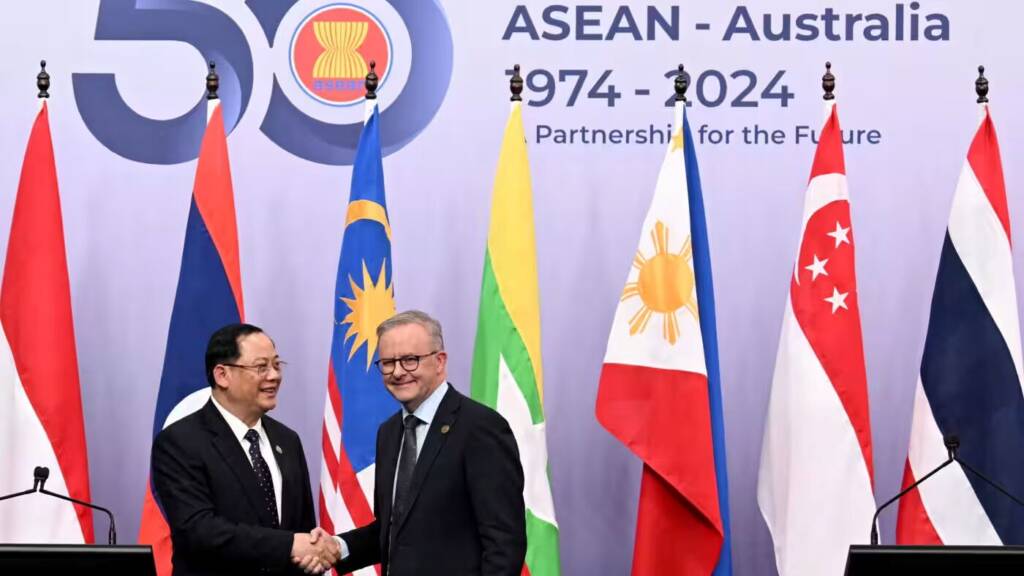Australia recently concluded a three-day summit with the Association of Southeast Asian Nations (ASEAN) in Melbourne, commemorating the 50th anniversary of their alliance. Despite shared objectives, varying opinions emerged regarding China’s intentions to expand its diplomatic and military influence in the region.
The summit concluded with a joint statement from Australia and ASEAN, emphasizing the importance of a “rules-based” order in the Indo-Pacific region. Notably, the statement urged restraint in the contested South China Sea and advocated for a lasting ceasefire in the Gaza Strip.
Join us on Telegram: https://t.me/tfiglobal
The gathering highlighted the ongoing complexities in the region, particularly concerning China’s expanding presence. The call for a rules-based order reflects a shared commitment to stability and cooperation.
“We recognise the benefits of having the South China Sea as a sea of peace, stability, and prosperity,” the statement said.
“We encourage all countries to avoid any unilateral actions that endanger peace, security and stability in the region.”
According to a spokesperson from the Chinese foreign ministry, the current situation in the South China Sea is deemed stable.
Read More: Australia Launches $1.3 Billion Investment Fund with ASEAN Allies
“We will properly manage differences with the countries concerned and fully and effectively implement them with ASEAN countries,” they said in response to questions about the ASEAN statement during a regular press briefing on Wednesday.
China responded to the Philippines’ summons of Beijing’s deputy chief of mission in Manila, expressing concern over what it deemed “aggressive actions” by Chinese naval forces during a resupply mission for Filipino troops in the South China Sea. Beijing asserts near-complete sovereignty over the South China Sea, a critical maritime route for over $3 trillion in annual ship-borne commerce, causing tensions, particularly with the Philippines. Despite the 2016 ruling by the Permanent Court of Arbitration rejecting China’s legal basis for claims in the area, Beijing continues to reject this decision.
Malaysian Prime Minister Anwar Ibrahim, in a press conference with Albanese, noted a perceived “China-phobia” in the West and downplayed the risk of conflict in the South China Sea. The joint statement from the summit also expressed concern about the “dire” humanitarian situation in Gaza and called for the release of hostages amid the Israel-Hamas conflict.
“We condemn attacks against all civilians and civilian infrastructure, leading to further deterioration of the humanitarian crisis in Gaza including restricted access to food, water, and other basic needs,” the statement said.
Read More: Australia’s FM Wong: No Country Should Rule Our Neighborhood
“We urge for an immediate and durable humanitarian ceasefire.”
ASEAN comprises Muslim-majority nations such as Malaysia, Indonesia, and Brunei. In contrast, Australia has historically been a staunch supporter of Israel. However, it is noteworthy that Australia, despite its pro-Israel stance, has advocated for a ceasefire and voiced criticism regarding the extent of casualties in the ongoing conflict.
